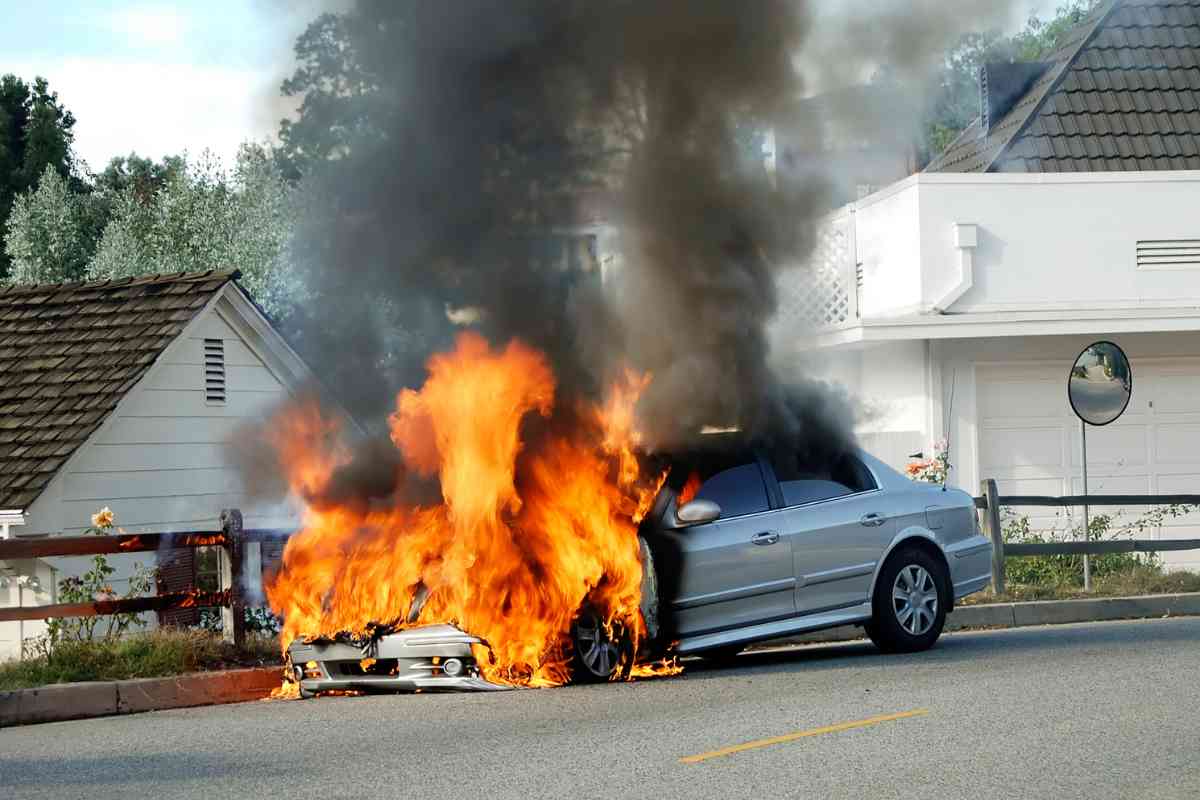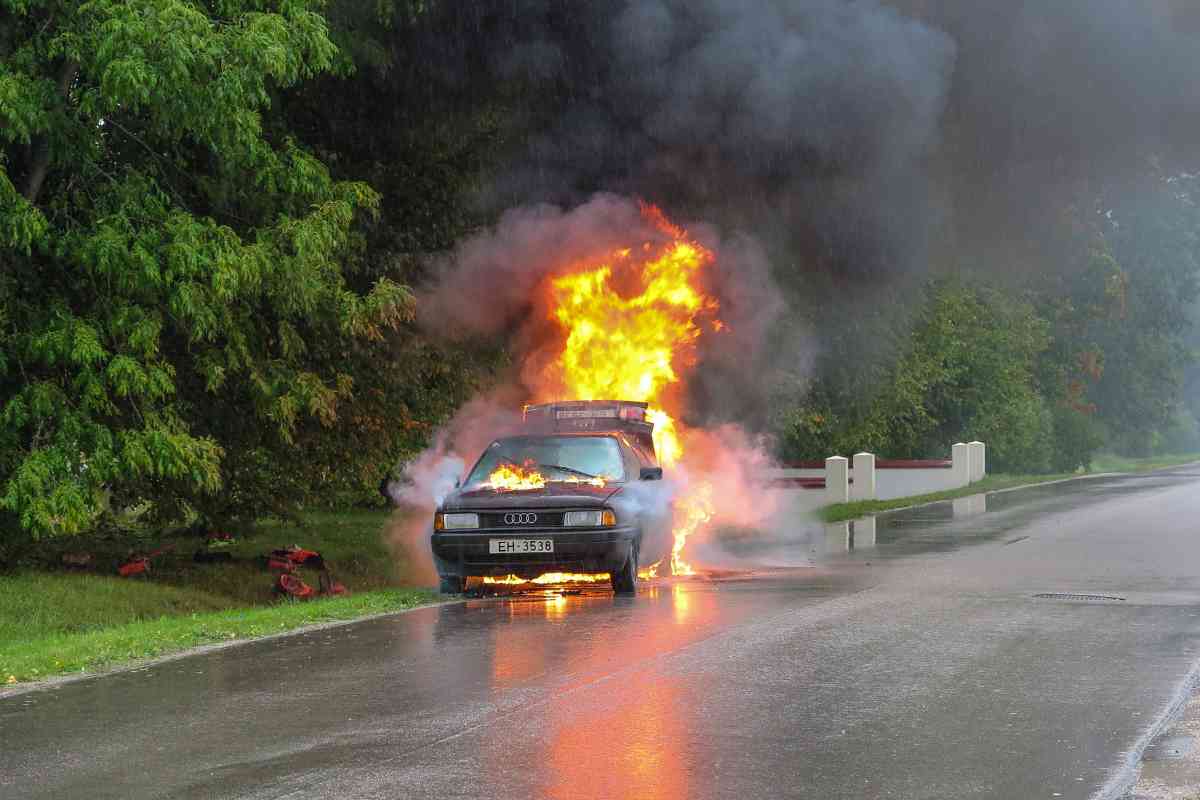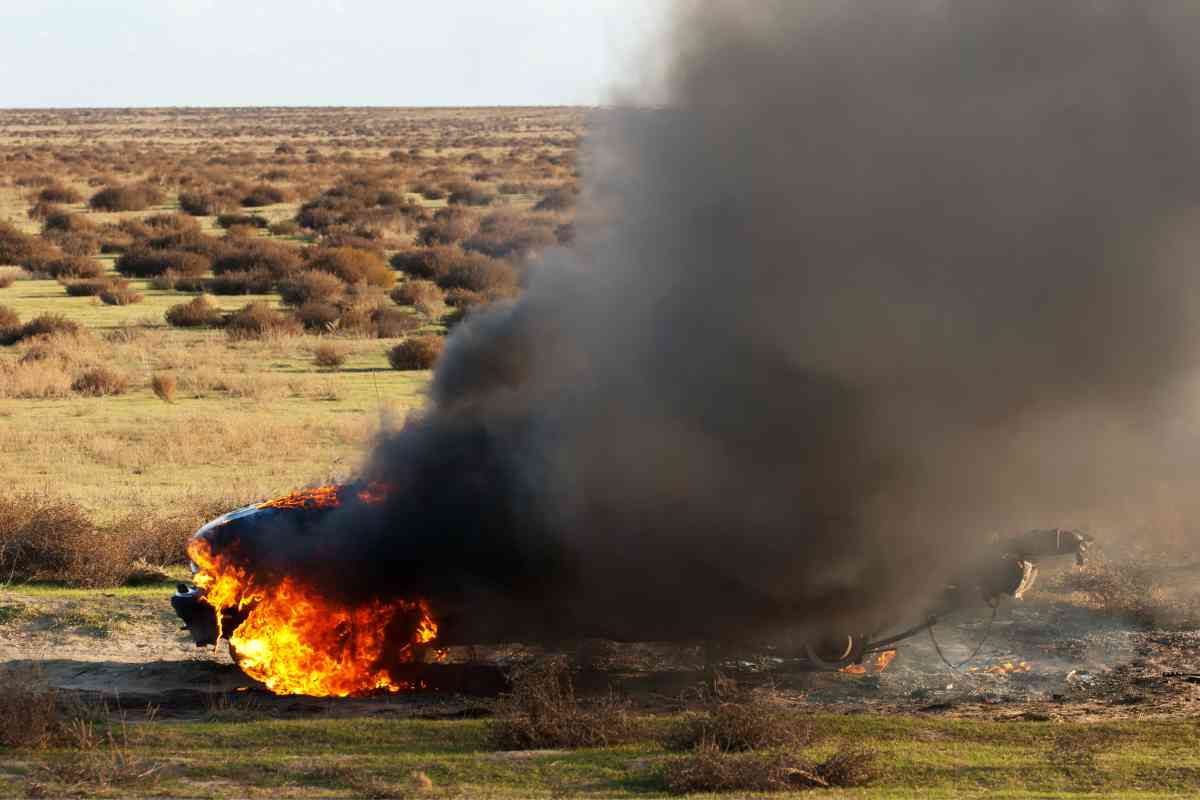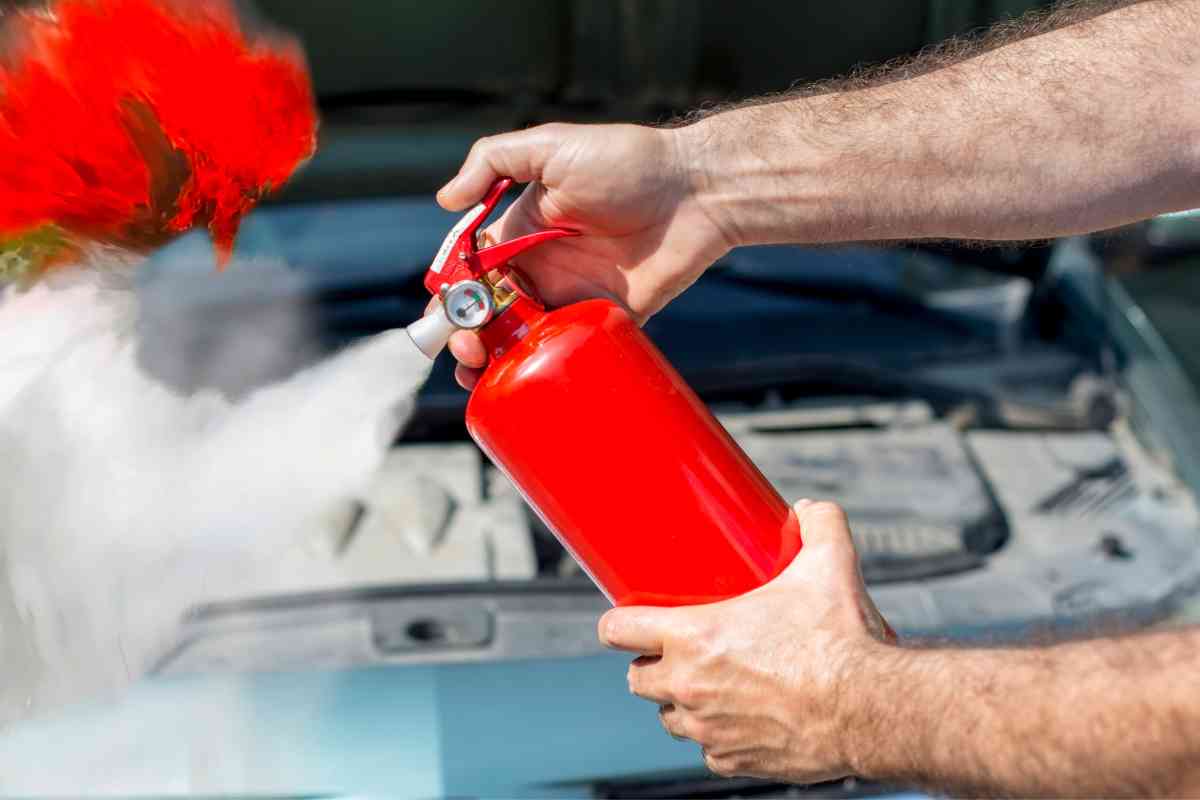Can A Car Engine Explode If It Overheats? Answered!
Your father always told you that if your car’s engine overheats, it could explode, but is that true? Can a car engine explode if it overheats?

Can a car engine explode if it overheats?
An engine can explode when overheated, but it is a rare occurrence. When an engine overheats due to a lack of coolant or oil, the engine will likely just seize and stop running. If you keep driving the car with high temps, gaskets can fail, and the block can crack, rendering the motor useless.
If you have ever encountered an engine overheating, you know how frightening it can be to see the temperature gauge rise and steam rising from underneath the hood.
Hopefully, you pull your car over to the shoulder and turn off the engine before it overheats enough to seize up. In this article, we will explore some of the reasons that engines overheat and try to determine if an engine can explode when it does.
What Causes An Engine To Overheat?
There are many possible reasons an engine might overheat, but the primary causes are a loss of coolant or lubricant (oil).
Loss of Coolant

The manufacturer designs a system for pumping coolant through the engine to keep your engine at average operating temperatures.
The car’s water pump pushes the coolant through a series of pipes and hoses through the engine block, and as it does, the liquid absorbs heat.
The hot liquid travels away from the engine through the radiator, which cools back down, only to be recycled again.
Because the coolant moves through a pressurized closed system, any break in the hoses, seals, pipes, radiator, or reservoir can cause the fluid to escape rather than travel along its intended route.
This potential problem is why you should inspect hoses for signs of fatigue, wear, or cracking.
The most common occurrence for overheating is when a radiator hose bursts (the large hoses attached to the radiator are made of a rubber compound that hardens and becomes brittle over time, if they crack or burst, then the coolant sprays out).
There are a couple of other common occurrences that can lead to coolant system failure. If the radiator is punctured or damaged, the coolant travels out of the hole in the radiator rather than continuing onto the engine.
The second issue is that over time a thermostat can block the flow of coolant, thereby creating an overheating issue.
A radiator can burst if the coolant cannot adequately be pushed through.

If the airflow from the front grill of the radiator is blocked or the water pump fails, then the engine continues to push hot coolant into the radiator, overloading the system.
As the temperature rises, the system’s pressure looks for the weakest area, meaning that a soft gasket, hose, or any other weak spot might fail and burst open.
If you notice the temperature gauge riding hotter than it should, you should take the warning light seriously.
Loss of Lubricant
Just as crucial as coolant is to an engine, so is lubrication.
Because your engine has many moving internal parts, manufacturers must keep those parts lubricated (metal scraping on metal is not good).
If a car loses a significant amount of oil, the lack of lubricant increases the internal heat of all those moving parts, and the engine malfunctions.
Just as there is a water pump to push coolant, every engine has an oil pump to push motor oil through the engine.
If the oil pump fails or a seal or gasket becomes brittle and cracks, oil can escape through the weakened spot. If the oil loss is significant enough, the engine fails.
The most common cause for oil leaks are gaskets that lose their seal. For example, an oil pan gasket can leak and begin to drip.
If you have ever come out and noticed a small puddle of oil on your garage floor, chances are a leaking gasket is causing it.
If a car suddenly loses oil pressure, then the engine will overheat. Signs of an overheating engine are a rise in temperature or a clunking or tapping sound from the motor.
If the engine gets too hot, chances are it will seize up, throw a rod, or blow the head gasket completely.
This scenario is where the chance of explosion comes into play.
The oil sprays over the hot metal places in your engine (like the exhaust manifold), and if conditions are right, it can ignite.

The intense heat does not mix with oil, and if the fire is severe enough, the gasoline vapors from the fuel system can also ignite, and the engine goes, . . . well, “boom” might be the right word.
Aren’t There Systems to Prevent An Engine From Exploding?
Manufacturers know there is a chance that any component on a car could fail at any time, so they have placed safety features in your car to alert you when something isn’t right.
That is why the many sensors and monitoring computers are positioned in hundreds of different places.
These sensors send warning signals to the instrument panel to alert the driver that something isn’t right.
Service technicians call these signals DTCs (Diagnostic Trouble Codes), and they have a device that scans the various systems of the car, and tells them when a sensor is triggered and why it did so.
By checking the DTCs of an engine, they can zero right in on the problem and fix it without having to guess what might or might not be wrong.
This is why it is very rare for an engine to burst into flames even though it has happened.
What Happens if My Engine Seizes?
If the heat buildup is intense enough, the motor will seize and fail to function.
When this happens, you can plan on replacing the engine completely, which is an expensive repair, costing between five to ten thousand dollars
This potential problem is why it is always best to take your car to a service technician at the first sign of trouble (that means don’t ignore the warning light).
Key Takeaways
- An engine can explode, although the occurrence is infrequent.
- An overheating engine is a primary reason a car might catch on fire.
- If your engine seizes up, you will need a new engine.
- When the temp gauge goes up, pull over and do not continue to drive the car.
